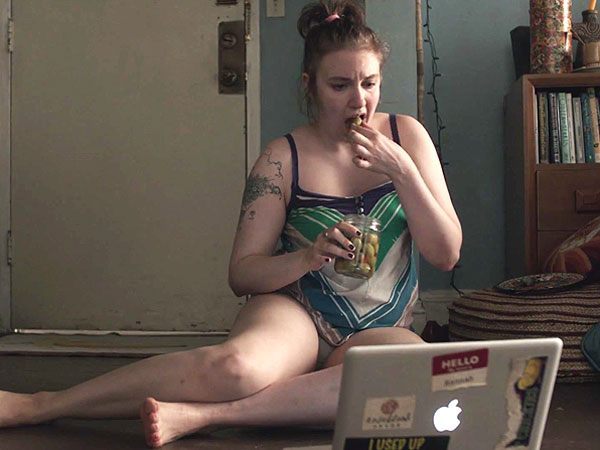Actress Lena Dunham criticized Twitter as a harmful place for women to spend their time, explaining why she decided to stop checking the platform.
“I’ve been fairly public about that fact that I no longer check my own Twitter,” she said. “I found that the hostility, particularly the hostility towards women and the expressions of violence were too much.”
Dunham made her remarks this afternoon during a forum hosted by MORE Magazine with First Lady Michelle Obama and actress Julianne Moore.
Dunham said that believed that Twitter was an “important platform” but demanded changes and protections from the hatred that she had exposed herself to. Dunham said:
Many internet media platforms — social media platforms — have to be putting more barriers in place for what is ultimately the violent harassament of women. And just because it’s not face to face, doesn’t mean it’s not extremely dangerous emotionally, doesn’t mean it couldn’t transfer to something really kind of terrifying in the real world.
She said she stopped checking her Twitter account, leaving it up to a social media manager. (She still has a Twitter account, but it is managed by a professional.) Dunham reminded critics that even though she was a celebrity, she was frequently bullied on the internet.
“Hey you may think that I have a fancy celebrity life where I’m hidden from this kind of thing but I to am experiencing violent bullying in the internet and it affects me also,” she said.
Dunham said that she had a Twitter account early — long before she was famous and had to censor some of the things she was comfortable saying in her early career.
“I went back and erased some things,” she said.
She said that Twitter had to implement more protections before she would return to the platform.
“I think that until new codes of conduct are in place, I’m not going to be able to return to looking at that platform freely,” she said.
She said that the problem with Twitter was that there were too many threats that were not being policed.
“I think it’s important to remember that threats are more than someone saying I’m going to come to your house and I’m going to hurt you,” she said. “Insulting someone’s appearance, insulting someone’s religion, or their race, you know, all of that to me constitutes a threat and I think we can make changes to how we control that dialogue on the internet without threatening our First Amendment rights.”

COMMENTS
Please let us know if you're having issues with commenting.